TalkAI's Artificial Intelligence Chat (Click Image Below to Start Chatting)
Tick tock goes the clock. For, as the saying goes, time waits for nobody. Ready or not, as the 21st century continues along its journey, the 22nd century stands waiting in the distance to take the baton. As time moves forward and as the Earth grows older, the 22nd century stands poised to take its turn basking at the helm of time. The 22nd century stands poised to become the next captain to pilot spaceship Earth.
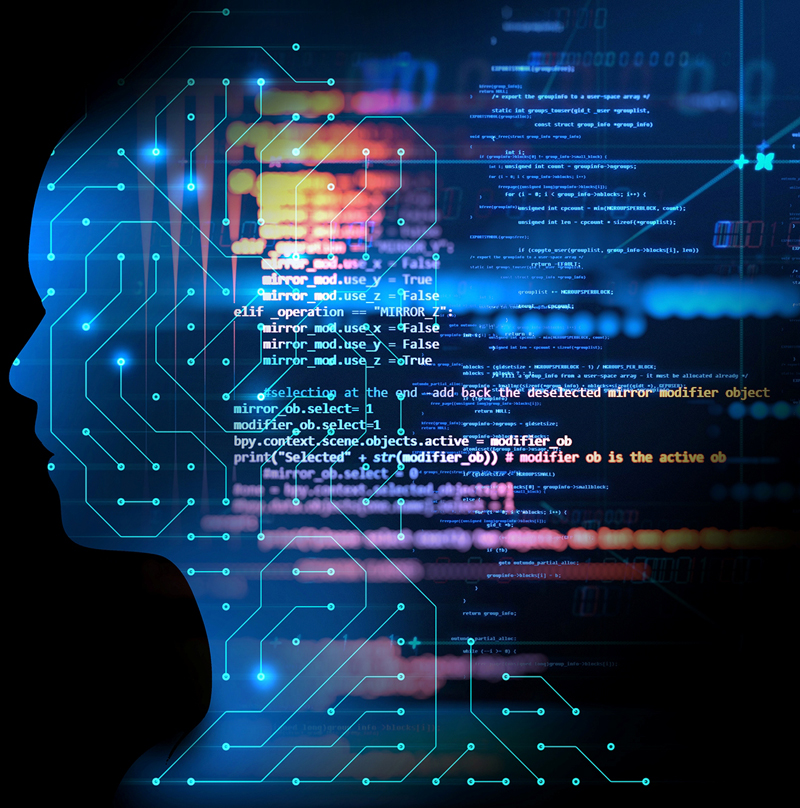 Data Science and Analytics
Data Science and Analytics
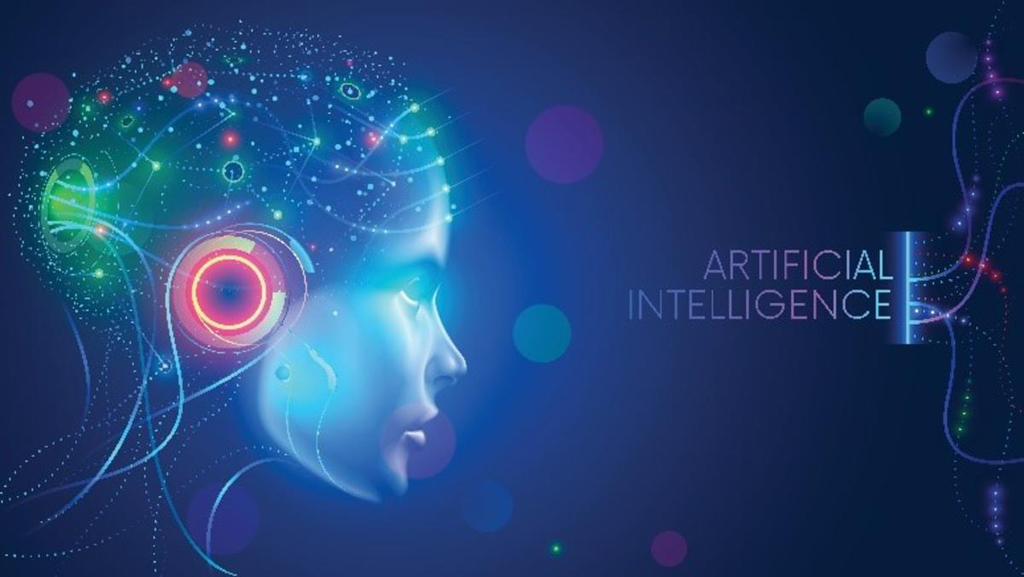 Fundamental and Applied Research and Standards for AI Technologies
Fundamental and Applied Research and Standards for AI Technologies
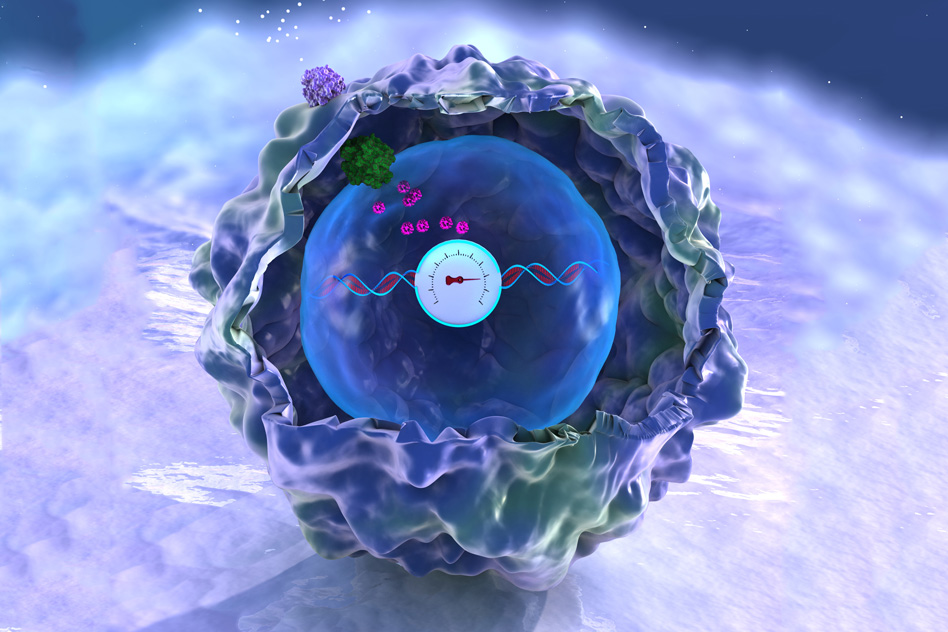 Recording analog memories in human cells
Recording analog memories in human cells
 Office of Naval Research (ONR)'s effort to create a high-tech, futuristic environment
Office of Naval Research (ONR)'s effort to create a high-tech, futuristic environment
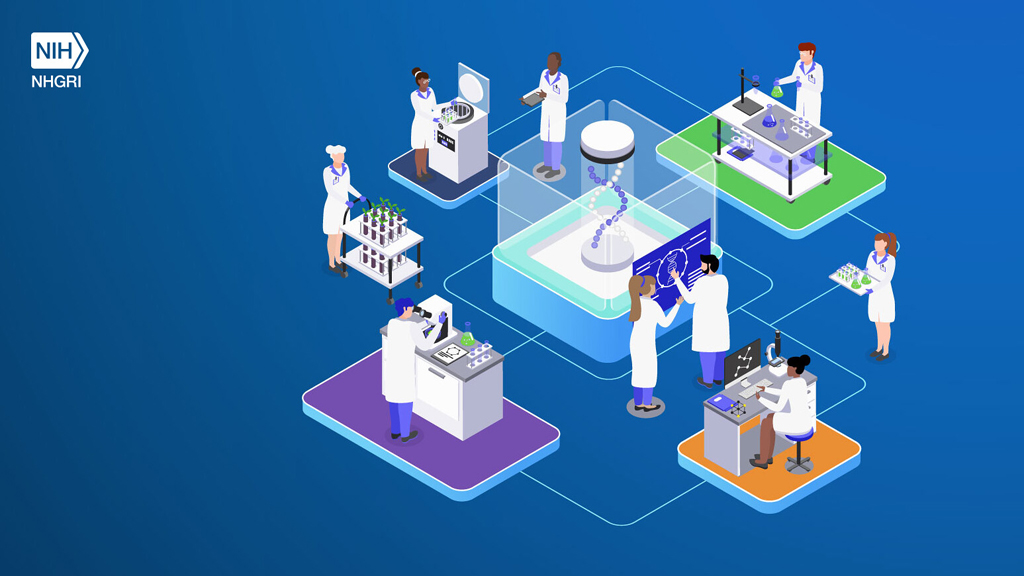 NIH-funded startups are fueling the era of genome-completeness
NIH-funded startups are fueling the era of genome-completeness
It has been said that the only thing absolutely certain in life is the inevitability of death. It also can be said that another thing certain in life is the inevitability of change. Earth is in a perpetual state of change. Humans (and all life forms on Earth) are in a perpetual state of change. For instance, from the moments of conception and birth to the moments of old age and death, the human body undergoes numerous dramatic—and sometimes traumatic—changes. Not only does the human body undergo a series of biological changes but also these changes can manifest themselves in sociological, psychological (i.e., mental and emotional), political, spiritual, cultural, national, and so forth, realms of daily living.
Madame X famously sang that humans are living in a "Material World," and Cyndi Lauper enthusiastically sang that "Girls Just Want To Have Fun." I don't know about all of that kind of stuff but I do know one thing, and it is this: Contemporary humans most definitely are living in a "digital world" as vividly illustrated by graphics below.
Much like a gathering storm biding the time before striking, likewise gathers the 22nd century. On Earth, it perpetually seems to be the case that "out goes the old" and "in comes the new" as illustrated by the next two graphics and as noted by the Jackson 5 in their song titled "It's Too Late To Change The Time." Are you prepared for 22nd century living? Much like the case of an onslaught of stormy weather, those who are not prepared will be rolled over and flattened by the 22nd century. So, now is the time for humans, collectively as a species, to come together and start preparing themselves for the change that inevitably is coming their way.

![History of Payments Shows Rapid Recent Changes Leading to Mobile Payments - icg.citi.com [Upwardly Mobile: An Analysis of the Global Mobile Payments Opportunity] History of Payments Shows Rapid Recent Changes Leading to Mobile Payments - icg.citi.com [Upwardly Mobile: An Analysis of the Global Mobile Payments Opportunity]](images/digital/upwardly-mobile.png)
![Old versus new technology [infographic] - Maxxor Blog Old versus new technology [infographic] - Maxxor Blog](images/digital/Old-vs-New-3.jpg)

To get a better sense of where the human species is headed, here is a general peek at the recent past, the present day, and quite possibly the way of the future assuming, of course, that human extinction does not loom right over the spacetime horizon. These images vividly illustrate that, on Earth, nothing lasts forever. Change is inevitable. The only unanswered question becomes this: Will that change come in the form of Heaven or Hell for the human species?
The Recent Past: Where Humans Have Been
![State Street, north from Madison, Chicago, IL between 1910 and 1920 [Photo Credit, Detroit Publishing Company photograph collection (Library of Congress)]](images/digital/lightbox/past-chicago-4a23993v-sm.jpg)

The Present Day: Where Humans Currently Stand at the Present Day


A Peek into the Way of the Future: Where Humans Are Going as They Move Towards the 22nd Century?


How exactly do humans prepare for 22nd century living? Stevie Wonder very succinctly pointed to the way how humans can prepare for the future when he sang to "Do Yourself A Favor." Members of the musical group Earth, Wind & Fire very succinctly pointed to the way how humans can prepare for the future when they sang to "Turn It Into Something Good." Humans can prepare for future living, first, by finding their niches relevant to the 22nd century.
Not only is contemporary technology trending towards being digital in scope and manifestation but also whoever has spent any amount of time on the World Wide Web, whether knowingly or unknowingly, has established a digital presence and a corresponding digital footprint or "digital profile" in the process as illustrated by the next graphic below. When Sir Tim Berners-Lee extolled the virtues of open data, linked data, public data sharing, and the emergence of a Semantic Web, I am certain his thinking did not envision the kinds of exploitation of trust, security, and privacy issues subsequently to have emerged on the World Wide Web.
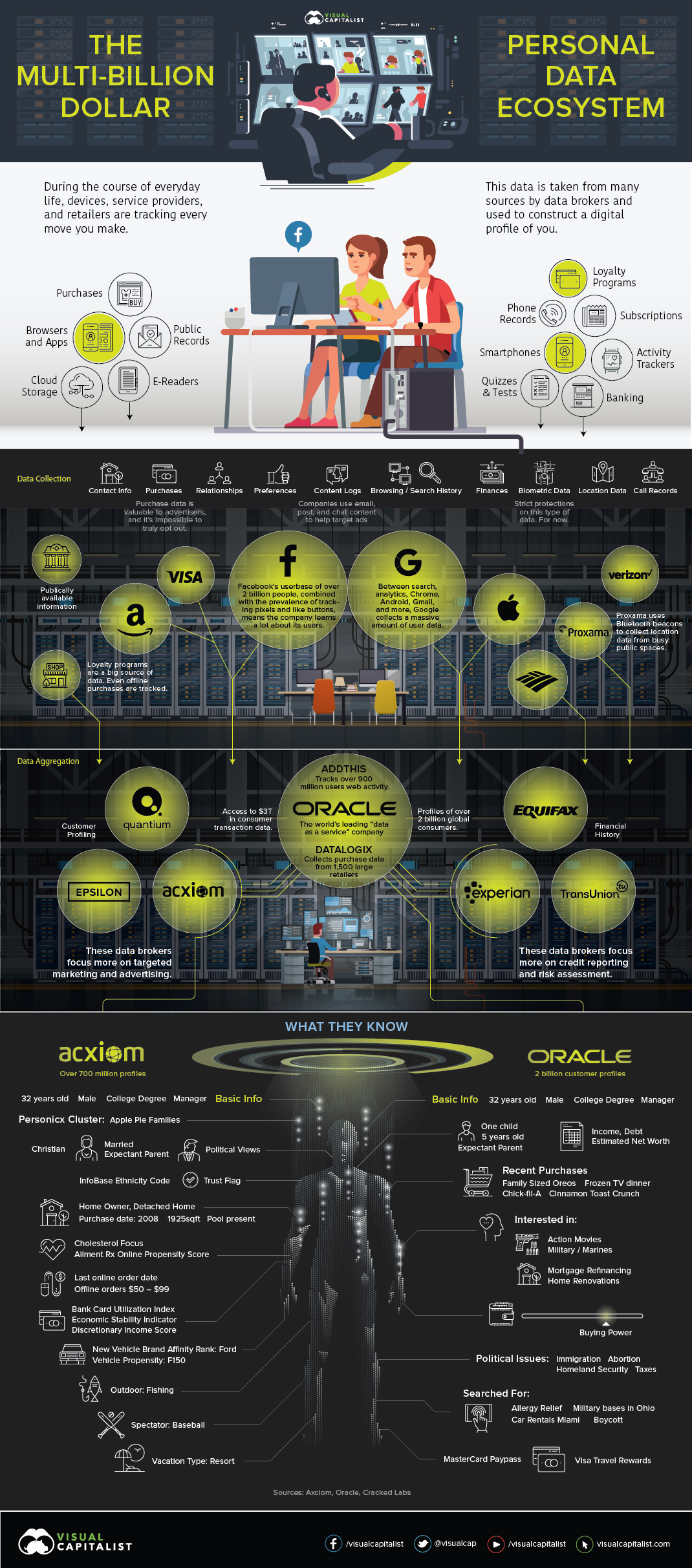
There is nothing at all wrong about having a digital profile. The key is for the person in question to remain a nameless, anonymous face in the crowd. In the ideal digital setting, your privacy is preserved as long as your digital profile is anonymously aggregated with other profiles purely for analytical purposes. In reality, humans increasingly find themselves under constant surveillance for no other reason than simply making use of modern technology such as technological devices that enable facial recognition detection, global positioning system (GPS) tracking, smartphone tracking, app tracking, internet protocol (IP) tracking, browser and social media tracking, and so forth. Problems particularly tend to arise when bad actors attempt to gain access to and exploit digital profiles for nefarious or sinister purposes such as cheating, stealing, defrauding, blackmailing, extorting, spying, and so forth, on targeted others.
In the real-world setting, personal security and privacy breaches do tend to arise especially when a person becomes famous, infamous, wealthy, popular, powerful, and so forth. It is when humans attain meritorious, celebrity, and notorious statuses in life when said person becomes a "special" or specific target for snooping, spying, leaking, stealing, and otherwise public exploitation of his or her stored digital profile usually for profit or scandalous purposes. If said person should run afoul of the law, then determined law enforcement officials are certain to exploit said person's digital profile in search for evidence to convict said person in a court of law. Employers, lenders, and renters sometimes query certain aspects of said person's digital profile in an effort to make financially sound business decisions.
There are numerous cliches about money. Some of the more memorable cliches include "money is the root of all evil," "money does not grow on trees," "you can't take it [money] with you [into the grave to spend]," "a fool and his money are soon parted," and "time is money." One thing is certain about money, and it is this: All humans need money to comfortably function on planet Earth, for instance, to obtain the necessities of food, water, clothing, and shelter not to mention obtaining an education and healthcare.
What is money? Money is anything used as a medium of exchange. It provides a convenient way for buyers and sellers or lenders and borrowers to engage in trade. In its most popular form, money is presented in the form of paper currency and coins. Money generally is expressed in the popularly used Base-10 number system. Money derives its legitimacy from popular acceptance, confidence, and trust that the value attached to it will not fluctuate wildly over time but, instead, its value will remain reliable, stable, and predictable.
One of my favorite money cliches is the one that says "money makes the world go around," for instance, as rapped about by Kanye West in his "Good Life" music video or as sang about by Fergie in her "Glamorous Life" music video. When it comes to money, perhaps two of the most recent and radical developments to occur in financial markets are the introduction of the digitally based e-currency and crypto-currency (including the underlying blockchain accounting technology) as mediums of exchange. The following graphic outlines the difference between e-currency and crypto-currency.
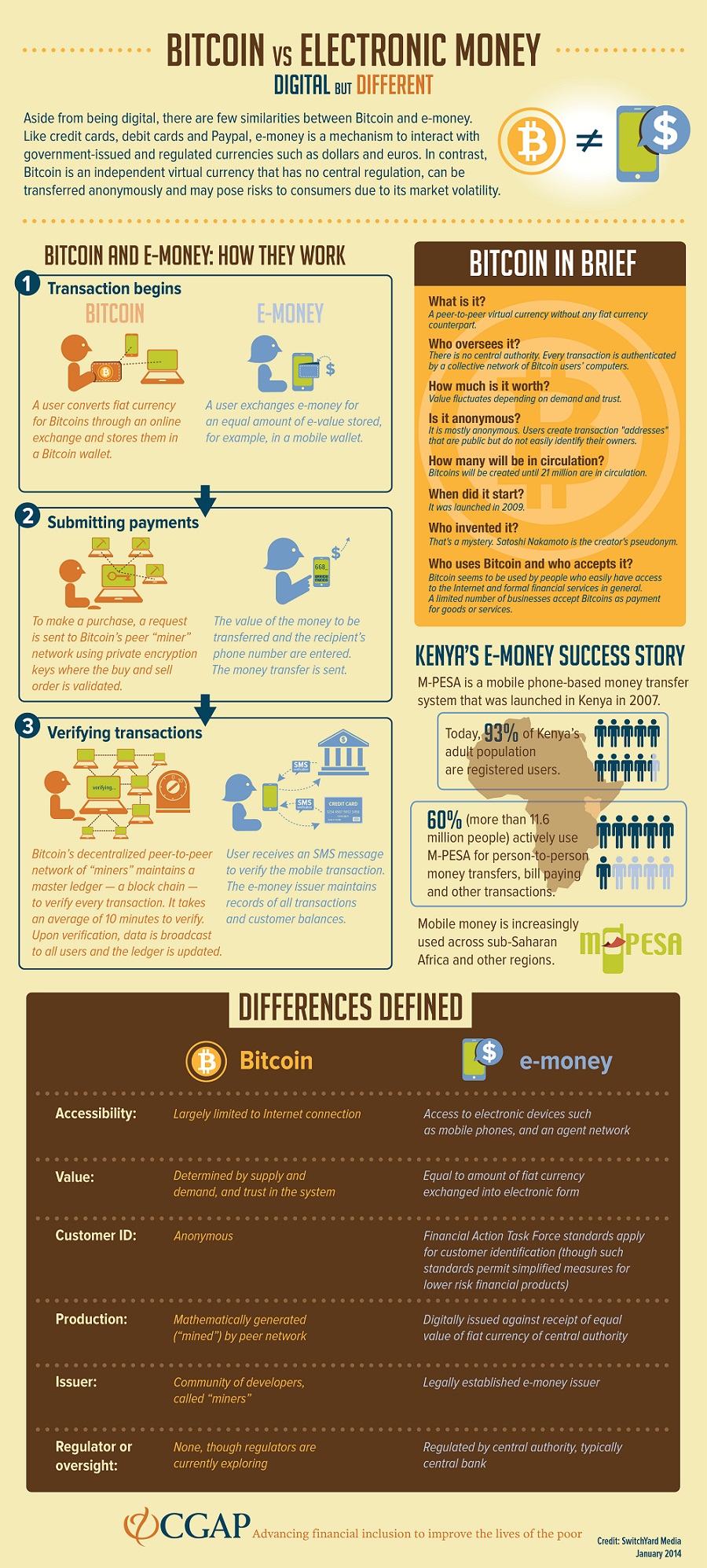
The chief difference between these two types of digital currencies is this: e-currency, on the one hand, is tethered to the centralized, well-regulated (and, to some extent, government-backed insurance against some losses) system of paper currency and therefore is more safe and stable. Crypto-currencies, on the other hand, are a part of a decentralized, unregulated system and therefore are riskier. Owning e-currency is much the same as owning a banking account. Owning crypto-currency is much the same as owning shares of stock. To be sure, owning crypto-currency can be riskier than owning stock because crypto-currencies are intangible and somewhat less liquid or less easy to convert into cash. Crypto-currency exists exclusively in the ether. Unlike money, on a whim, you cannot withdraw your crypto-currency holdings from the ether, proceed to stuff them into your pocket, wallet, or purse, and then walk into any store and start spending them. Say, for instance, an ill-intentioned hacker figured out a way to erase or delete all records in a crypto-currency's existence in an electronic database network. What recourse for restitution would the holders of said crypto-currency have? On the other hand, it should be noted that crypto-currency exchanges are emerging to make crypto-currency more liquid and therefore more broadly embraced by consumers and businesses as an acceptable substitute for money.
As long as crypto-currency remains a widely accepted medium of exchange whereby you easily and reliably can purchase goods and services with it and can be assured of delivery of the items purchased, then all is good with crypto-currency. Also, as long as crypto-currency is tethered to a stable paper currency, say, via a currency exchange or ATM machine where owners of crypto-currency could readily convert it into cash, then all is good with the use of crypto-currencies in commerce. Perhaps crypto-currency's greatest weakness is its susceptibility to market panic and the market-stampede phenomenon (except there would be no cash reserves to use should the crypto-currency miners suddenly decide to relinquish their portfolios of crypto-currency shares).
As generally is the case with any utopian dream, there always seem to be bad actors in the world hard at work in the lurk trying to turn the utopian dream into a dystopian nightmare. The new crypto currencies are no exception to this utopian-dystopian propensity as the next graphic illustrates. While not in any way diminishing the fraud surrounding other digital payment methods, it should be noted that not only are crypto-currencies susceptible to losses by fraud and stealing but its unregulated and uninsured stature gives holders/owners of crypto-currencies little recourse for recovering some of their losses when instances of fraud and stealing do occur.

In closing this introductory page, the primary focal point of this website will be to explore various business-related topics. This website's focus is on business because the business sector is a major driver of societal change. Business traits such as entrepreneurship, ingenuity, acumenship, innovativeness, the profit motive, the recognition motive, the achievement motive, and so forth, are the oils that grease the engine of technological change. The final graphics below are presented to celebrate the entrepreneurial spirit propelling business innovation.

Even more importantly than business traits such as the entrepreneurial spirit, ingenuity, and innovation being driving forces of societal change, in preparing for successful living in the 22nd century, humans, collectively as a species, must shift gears by embracing a higher mentality and a futuristic mindset. For instance, a futuristic mindset is one whereby acts of violence, hatred, murder, and wars simply would be unthinkable not to mention a host of other assorted human atrocities and criminal acts. Humans must adapt to a new way of thinking, doing, and living. Some extras/goodies have been tossed into this website's mixture for good measure. For, as the saying goes, variety is the spice of life. Enjoy. Happy surfing.
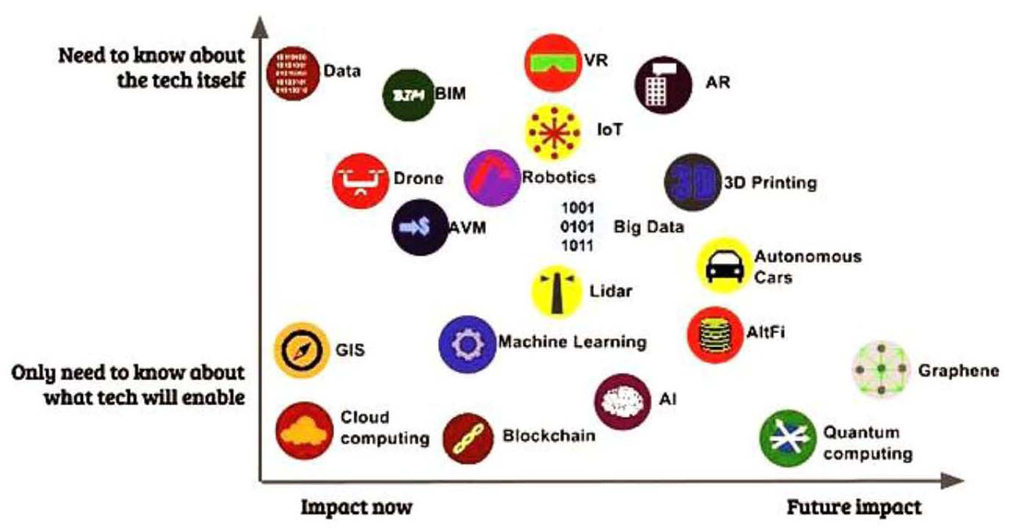 Some representative emerging information and communication technologies (ICT), which include the Internet of Things (IoT), Big Data, Clouding Computing, Artificial
Intelligence (AI) and Machine Learning (ML)
Some representative emerging information and communication technologies (ICT), which include the Internet of Things (IoT), Big Data, Clouding Computing, Artificial
Intelligence (AI) and Machine Learning (ML)